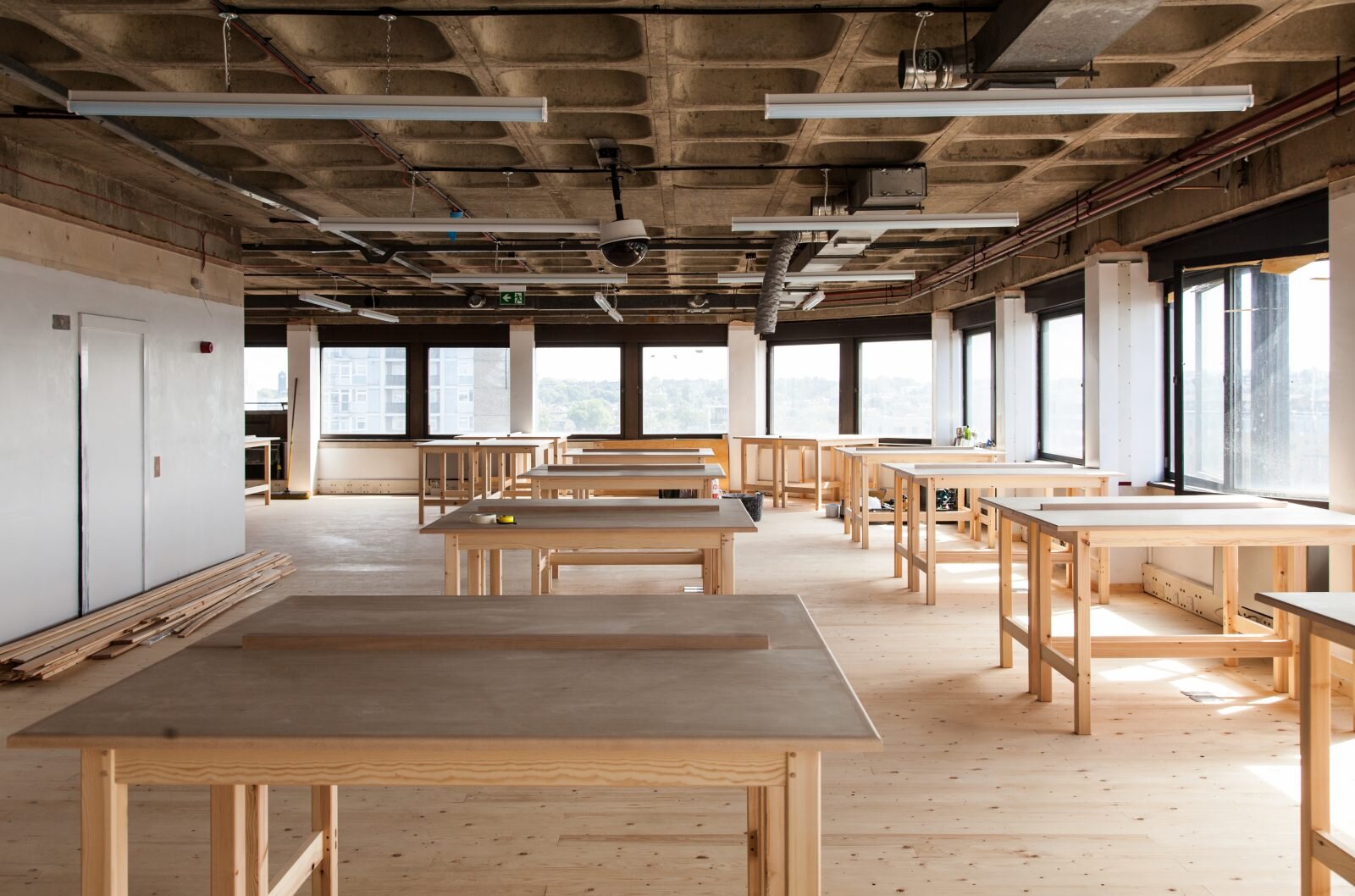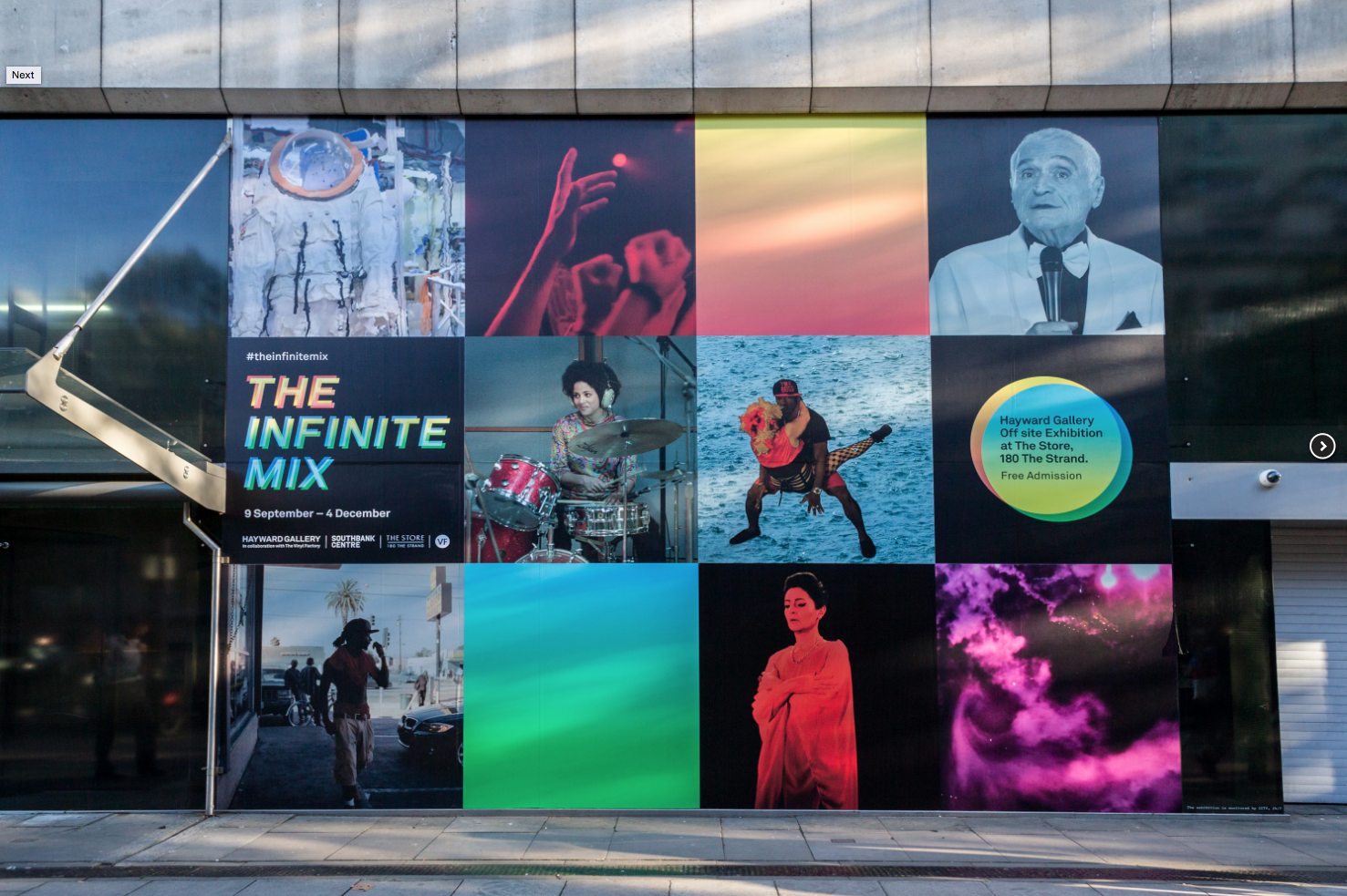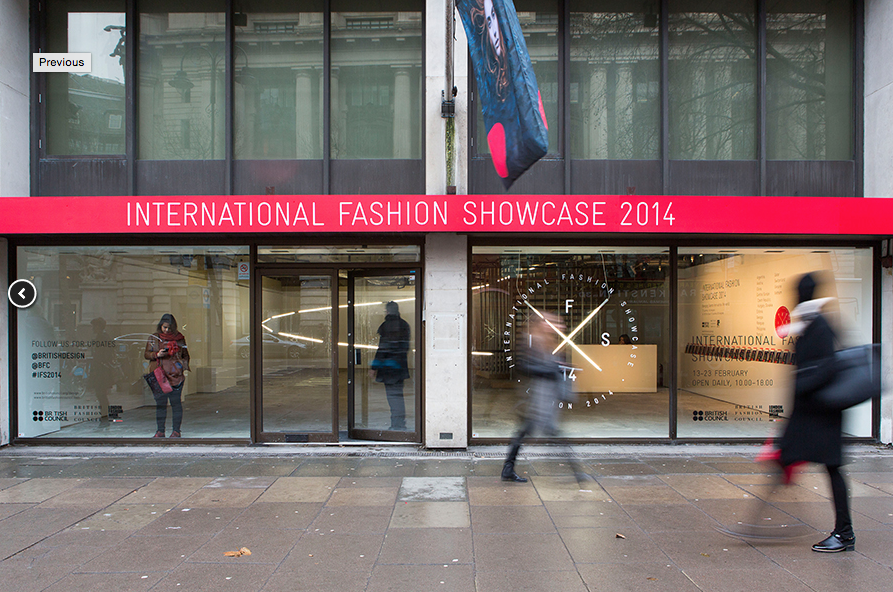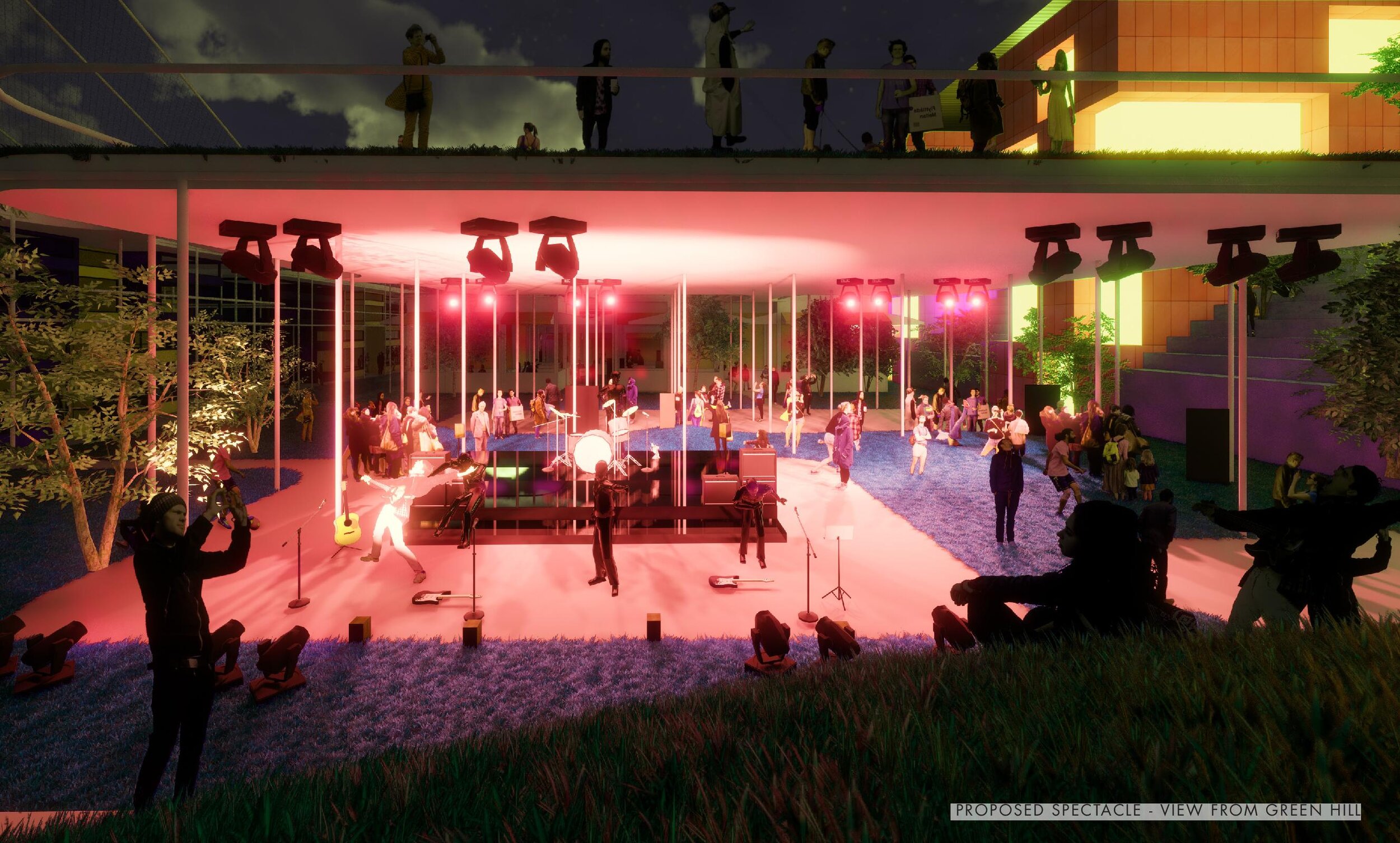The Turning Circle Collective
THE TURNING CIRCLE PROJECT
RESPONDING TO THE COVID-19 CRISIS IN MELBOURNE CBD
Turning Circle Project is a plan to revitalise Melbourne by engaging the dynamic power of its local creative industries and the adaptive re-use of vacant CBD space. It is designed to immediately support the social, cultural and economic vitality of Melbourne by fostering creative enterprise and cultural production through the creation of a new central creative precinct.
The idea responds to the sudden emptying of Melbourne’s CBD and the likely long- term effects of Covid-19 on demand for commercial, retail and office space. Its aim is to develop prosperity, local economies and with the involvement of a new generation of artists/designers in the life of Melbourne CBD.
We all love Melbourne’s dynamic cultural identity and would be devastated by the loss of its reputation as a cultural capital, its liveability and its role as a creative powerhouse.
Images from 180 The Strand London, The Victorian Eco Innovation Lab activator for Friesland, Netherlands and Assemble UKCREATING A CENTRAL CREATIVE PRECINCT
Melbourne’s CBD has a history of renewal, most recently in the 1970s and 1980s when many artists and designers moved into vacant offices and other low-cost buildings. This in turn attracted complementary cultural enterprises and created a buzz of economic activity and a unique city community.
We believe the current Covid-19 crisis requires a major rethink of how we use our City. Our plan is to work with key stakeholders and engage Melbourne’s creative industries to strengthen the CBD through developing a central creative precinct.
The area selected for the Turning Circle Project is bounded by Collins, William, Flinders and Queen Streets. It is a significant location, close to the foundation site of Melbourne and the new Market Street Park and public amphitheatre at the new Collins Arch development. Its valuable mix of features also includes diverse building stock, the Immigration Museum (former Customs House) together with creative and hospitality businesses make it the perfect home for a new creative precinct.
The Turning Circle research project and case study is a long-term plan, devised in association with RMIT University, to revitalise Melbourne and support its creative industries.
Phase 1 will culminate in a series of summer outdoor events in the new Market Street Park and Collins Arch amphitheatre to coincide with the “reopening” of the City. Subsequent phases will continue in 2021 identifying vacant spaces and brokering introductions between landlords and artists/creative businesses. Throughout the project, a public/private partnership will be developed that includes government, business and philanthropy that encourages new local economies and communities in the precinct.
THE TURNING CIRCLE PROJECT VISION
The Turning Circle Collective vision to support local creative production in Melbourne can be summarised as follows:
• Create a centre of creative production model in CBD
Cultural activity is a key part of Melbourne’s identity and brand. Using creative production as the driver, develop new local economies and civic engagement by repurposing vacant space in CBD with the new generation of artists and designers.
• Develop a model that is adaptable and repeatable
Research, implement, test and document the development of organizational, financial and governance models for CBD based creative production hubs - and use Turning Circle case study as an open access resource to build collective understanding about how to grow the creative sector economy, related infrastructure and local manufacturing.
• Build a project partnership team
Build a collaborative public/private partnership team of government, landlords, education institutions, relevant precinct stakeholders and creative industry sector to cooperatively build, support and manage a creative production precinct.
• Create dynamic civic spaces and activate CBD
Build a dynamic civic outcome, emphasising outdoor and accessible activities and events that will promote, support and grow a long-term creative community in the CBD as a vital site of production, creative entrepreneurship and community engagement.
• Leverage existing local opportunities
Work with existing precinct groups, landlords and cultural programs and events to provide leverage to engage new creative industry opportunities that specifically draw value from and further support existing local creative industry and CBD activation.
Stakeholder engagement (September 2020)
• City of Melbourne (councillors, cultural infrastructure, city design studio, smart city office,
precinct committees)
• RMIT University
• Museum Victoria / Immigration Museum
• Collins Arch (Cbus, ISPT, W Hotel, owners corporation)
• Schoolhouse Studios
• Testing Grounds/ Siteworks
• MPavilion/ Naomi Milgrom Foundation
• Victorian State Government
THE TURNING CIRCLE PROJECT: Why now, and why here…?
The Turning Circle Project is based on our belief in the importance of creative industries and cultural production to the vitality of Melbourne as a city and its role as a cultural and economic powerhouse.
From our research, there are multiple factors that are likely to reduce demand for commercial, retail and office space in the CBD:
• economic impact of Covid-19, especially during the 2nd Melbourne lockdown, will put
pressure on corporate bottom lines and companies will be looking to reduce spending
potentially reducing demand for CBD office space;
• economic impact of Covid-19 will see a dramatic increase in retail vacancies;
• economic impact of Covid-19 will see a dramatic decline in tourism, CBD business activity
and visitation;
• the impact on supply line businesses and complementary industries, especially hospitality
that were co-located in the CBD;
• employees’ preferences for more flexible working arrangements, including working from
home;
• employees’ preferences to cut their commute, either to save time or a reticence to use public
transport;
• realisation by employers that remote working might not impact long term productivity
• expected drift to better quality (premium) office space and emptying of lower quality
commercial stock;
• impact on viability and appeal of high-end residential in the CBD if there is reduced visitor
numbers and reduced cultural and hospitality activity;
• reduction in international student numbers on CBD activity;
• moves by large firms/government to set up hub and spoke models of office use, with reduced
centrally located (hub) office space mostly assigned for meetings and day to day work
achieved offsite in suburban (spoke) locations;
• Covid-19 health and safety protocols and social distancing;
The research undertaken in the project will test some of these ideas and assumptions in the
case study area (Turning Circle) as it has the benefit of a number of key elements:
• high quality public space
• diversity in the built form and scale
• existing cultural activity
The Turning Circle area is a mixed-use area occupied by residential, hospitality, retail and office space ranging from the new Collins Arch development to some of the oldest bluestone buildings remaining in Melbourne. And it includes the Immigration Museum, shared work spaces, hotels, carparks, publishing houses, cultural organisations, architects, indigenous design business and a mix of hospitality businesses. All of the properties and businesses within the Turning Circle area will be affected by the impact of Covid-19. In real estate parlance, much of the office accommodation in the precinct would be considered “B-grade”, and most likely to be vacant if the projected oversupply plays out in the way that is expected.
The Turning Circle Project aims to respond to these challenges with a long-term vision that develops new local economies, reinforces Melbourne’s reputation as a cultural capital and improves community engagement for the lasting benefit of Melbourne CBD. This vision is based on developing an inclusive and engaged governance model, built on a partnership of public and private stakeholders.
THE TURNING CIRCLE COLLECTIVE PROJECT LEADERSHIP
The decision to establish the Turning Circle Collective is in response to the enormous challenges facing Melbourne due to the impact of Covid-19. The impetus to act now is drawn from the group’s shared experiences of Melbourne during four decades of economic and cultural expansion and downturns.
The Turning Circle project will be led by Wendy Lasica (urban planner and creative producer), Michael Trudgeon (architect, designer and educator) and Robert Buckingham (creative director and design entrepreneur) – who have each played a significant role in the social, cultural and economic life of Melbourne.
The combined skills and experience of the Turning Circle Collective includes design, arts production, event and festival programming, strategic planning, education and entrepreneurship. It combines innovative, intelligent and resourceful ‘thinking and doing’ with extensive local, national and international contacts and high-level insight and experience.
Michael Trudgeon and Robert Buckingham were part of the reinvigoration of Melbourne in the 1980s, and have continued to play key roles in the design sector. Wendy Lasica has produced and toured live performance in Melbourne and internationally and is a trained urban planner.
The Collective’s involvement in Melbourne’s cultural and creative industries sector gives it considerable insight and extensive contacts that will help support the next generation of artists, designers and creative producers – and help Melbourne manage the forthcoming economic, social and cultural challenges.
Contact email: info@crowd.com.au
Website: crowd.com.au/tcc
Acknowledgement
Turning Circle Collective acknowledges the Boon Wurrung and Woi Wurrung people of the Kulin Nation as the Traditional Owners of Melbourne and pays respect to their Elders, past, present and emerging. We acknowledge the Traditional Owners of lands and waters across Australia and recognise that Indigenous sovereignty has never been ceded.
Our Values
Turning Circle Collective believes in providing equal opportunities regardless of race, colour, gender identity, sexual orientation, religion, age or disability. We are committed to making our activities inclusive and celebrating diversity in our programming, personnel and audiences, including supporting First Nations and diaspora communities.
Wendy Lasica
After decades of producing across the performing arts, Wendy retrained as an urban planner and in 2014 established a niche practice working at the intersection of cities and culture with a client list including ISPT, Burbank Properties, and Creative Clunes. She is an award-winning theatre producer with a 20-year history of producing and touring new work with internationally renowned theatre maker Brian Lipson. She also produced the colossal Demolish as part of the Regional Centre for Culture 2018 in Bendigo, and Two Jews walk into a theatre with Lipson and Gideon Obarzanek, which went on tour to the Sydney Opera House. Wendy has been a director and board member of Next Wave, chaired funding panels for Creative Victoria, managed a playwrights’ award for State Library Victoria, been general manager for Stonnington Symphony, and was commissioned by the Australia Council to research a how-to book for emerging artists. Wendy worked extensively in New York, including founding The Field, an organisation that supports the development of emerging artists. Wendy has contributed to forum discussions for the Wheeler Centre, MPavilion, Planning Institute of Australia, Open House and Arts House on aspects of the city and culture.
Robert Buckingham
Robert Buckingham has a long association with Australian design, fashion and retail sector as well as government and arts organisations through his work with Craft Victoria (1992-1996), the establishment and leadership of the Fashion Design Council of Australia (1984-1990) and Melbourne Fashion Festival (1996-2004). In these roles he has been responsible for the creative direction of events and exhibitions, cultural programming, publishing, communications, marketing and developing international associations through business events and seminars.
In 2004, Robert established his own consultancy, Mr Buckingham and became the Australian Associate of the London based trend forecasters, The Future Laboratory (2006-2012) and its global network of consumer trend intelligence and insights. Understanding how cultural activity, events, consumer and retail trends, planning and a unified marketing approach enrich brands is central to his work as a strategic planner.
Since 2012, Robert has worked with Melbourne entrepreneur and philanthropist Naomi Milgrom AC to establish the Naomi Milgrom Foundation and MPavilion project. These endeavours focus on promoting contemporary art, design, architecture, urban planning, civic engagement and cultural collaboration. Together, they have contributed to Melbourne’s reputation as a creative capital and developed many significant national and international partnerships. Robert recently edited MPavilion: Encounters with Design and Architecture.
Michael Trudgeon
Michael Trudgeon has thirty years of industry experience, as the founding Design Director at Crowd Productions, in industrial design, commercial architecture and communication design. As part of the creative arts and design revolution in Melbourne in the 1980s, Crowd Productions published a bi-monthly magazine of emerging local fashion design, music, food, writing and architecture. Subsequent completed projects by the Crowd Productions design studio range from national retail roll-outs, cinema complexes and major exhibition installations to commercial products. He has focused on the co-ordination of cross-disciplinary research, working with emerging technology, pioneering spatial prototyping processes for retail and commercial projects.
He is a Professor of Design at the RMIT School and Design, where he has taught since 1983. From 2010 he has been the Deputy Director of the Victorian Eco Innovation Lab, a sustainability research centre established at the Faculty of Architecture, Building and Planning at the University of Melbourne, helping to establish an international open innovation network of researchers, academic and professional designers and governments, to explore the role of sustainable production systems. He is currently the coordinator of Major Projects in the Master of Design Innovation and Technology program at the School of Design at RMIT.









